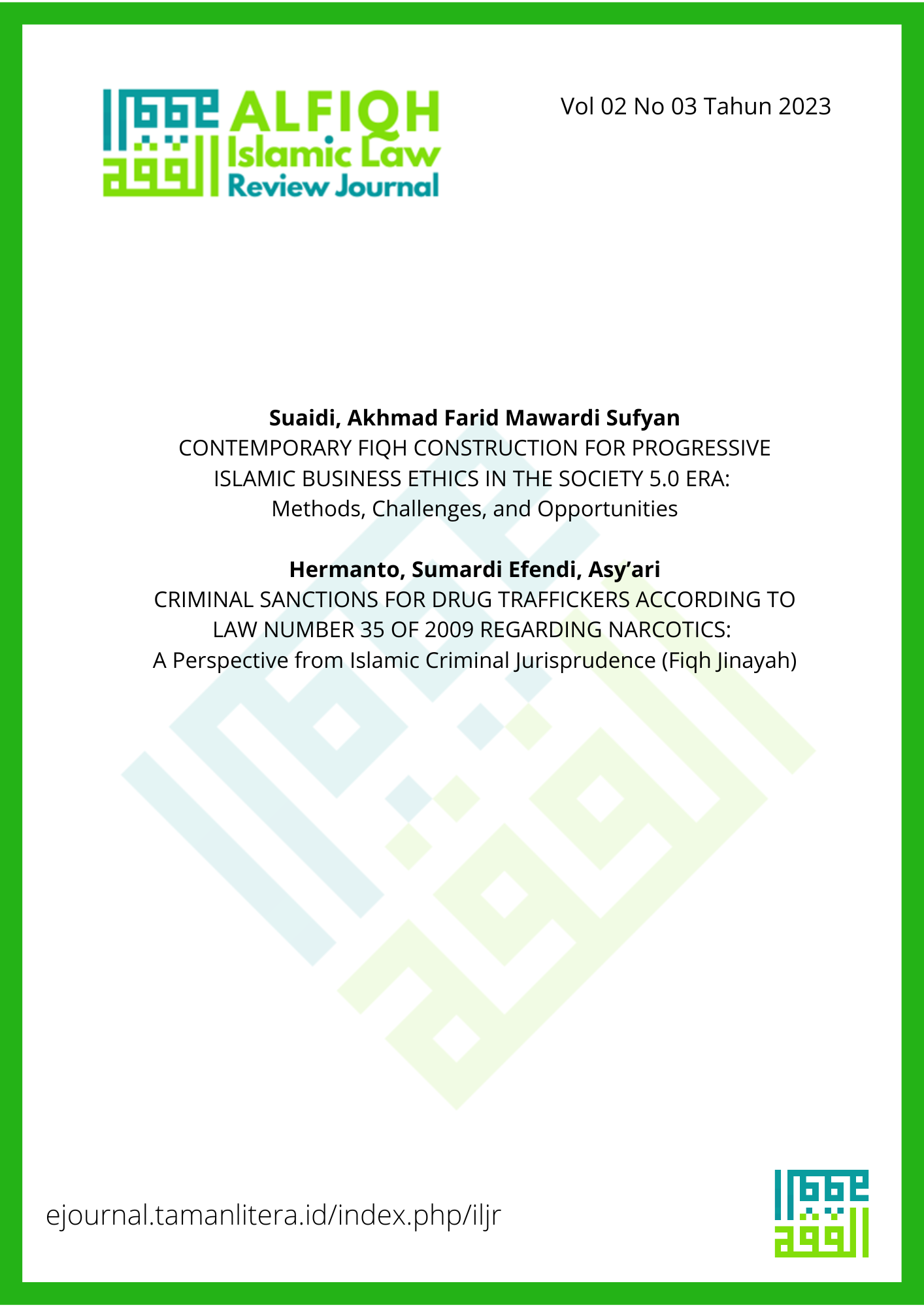CRIMINAL SANCTIONS FOR DRUG TRAFFICKERS ACCORDING TO LAW NUMBER 35 OF 2009 REGARDING NARCOTICS
A Perspective from Islamic Criminal Jurisprudence (Fiqh Jinayah)
Keywords:
Criminal Sanctions, Drug Dealers, Laws, Jinayah FiqhAbstract
The circulation of narcotics is a serious threat. To address this issue, Indonesia enacted Law No. 35 of 2009 to regulate the use and circulation of narcotics. However, in the context of Islamic law, the term "narcotics" is not recognized, and there are no specific rules in Islamic jurisprudence (fiqh jinayah) regarding sanctions for drug traffickers. This article examines criminal sanctions against drug traffickers under the aforementioned law and the perspective of Islamic jurisprudence on these sanctions. The method used is a juridical-normative approach through literature research. The research findings indicate that the aforementioned law, articles 111–125, establishes sanctions for drug traffickers, ranging from imprisonment and fines to the death penalty. In this context, Islamic jurisprudence does not provide explicit rules for the punishment of drug traffickers. Therefore, narcotics are likened to "khamr" (intoxicants), and the punishment falls under "ta'zir" (discretionary punishment). Drug traffickers are subjected to "ta'zir," a legal sanction that is not explicitly regulated in the Quran or Hadith. The determination of ta'zir is within the authority of the ruler or judge. Hence, the punishment for drug traffickers is considered ta'zir from the perspective of Islamic criminal law. Thus, the aforementioned law is in continuity with Islamic jurisprudence.
Downloads









